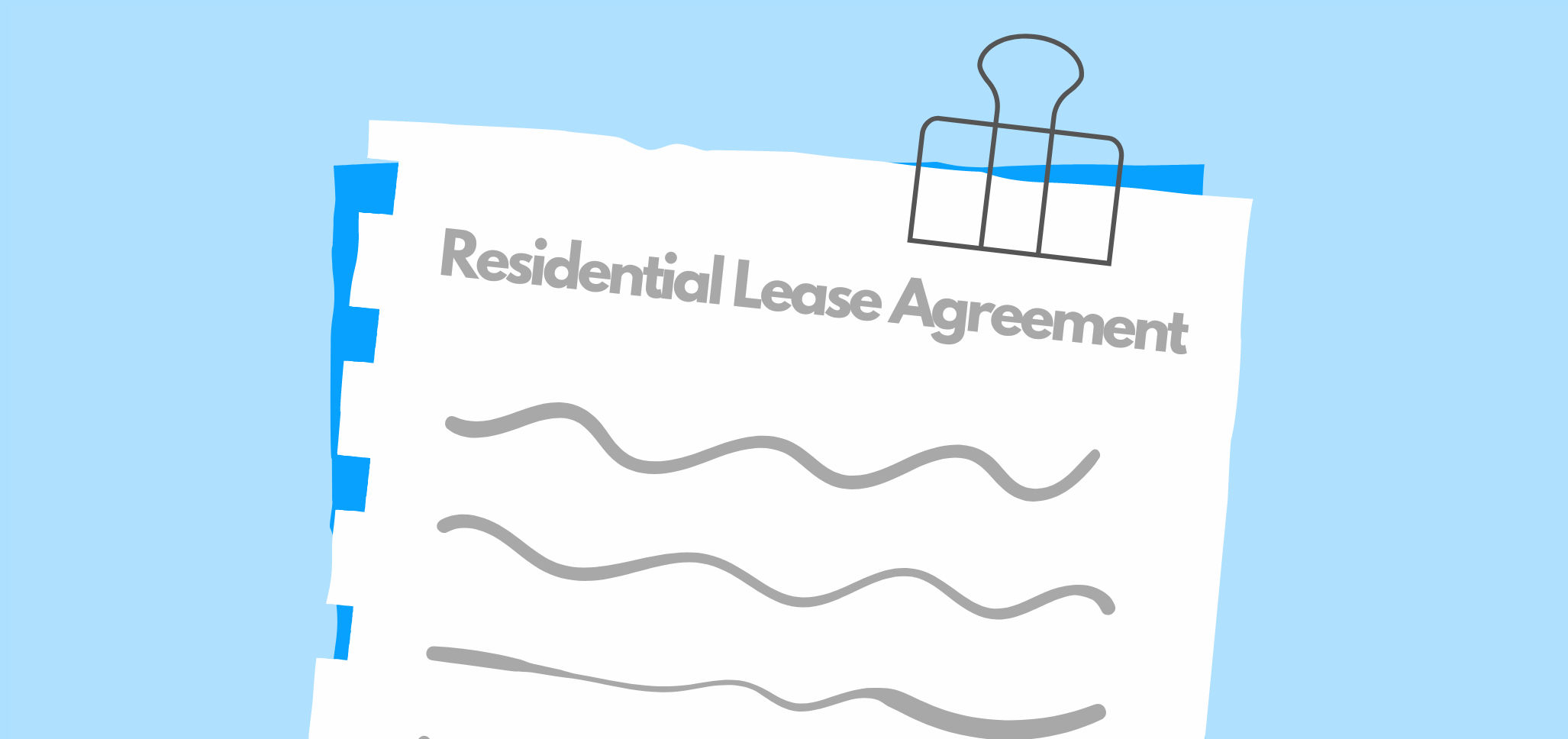
Lease Terms: What You Need to Know Before Signing a Lease

By Lilly Milman
Feb 21, 2023
Signing a lease agreement on a new apartment is exciting — especially if you were racing against the competition to get your application approved on a popular place, or it’s your first time moving out on your own. But remember: This is a legally binding contract, and you need to be aware of what you are agreeing to do. Before signing your name on the dotted line, it’s important to go through the lease terms slowly and read the fine print to ensure the living situation will be a good one for you and your landlord.
While your lease terms will vary from apartment to apartment—and even more so across different states — there are a few standard terms you can and should look out for before signing your lease.
Monthly Rent Due and the Due Date
This is perhaps the most important lease term on our list, as paying rent on time is the first step to establishing a positive relationship with your landlord. Along with the exact rent amount expected each month and the monthly due date, this part of your lease should also spell out:
- What acceptable forms of payment are (Will you need to mail a check to your landlord each month? Will they be using a service to take money directly out of your bank account? Can you send a money order?);
- Where rent payments should be sent to;
- Whether you are entitled to a grace period when it comes to late payments (Will you be charged a late fee?);
- What rent increases or rent specials you can expect over the period of the lease, if any (This is particularly relevant to those who began leases during the pandemic);
- If your property has rent control.
Remember, the general rule of thumb for renters is to spend no more than 30% of one’s income on housing. Make sure the monthly rent is affordable, and ask any questions you have related to rent, before signing your lease. While rent negotiation down the line is possible, you shouldn't go into a new lease expecting that it will occur.
Start and End Date of Lease
You can expect that standard apartment lease is generally set for six months or a year, unless you are signing a month-to-month rental agreement, which would only cover 30 days at a time. It’s important to look closely at the start and end date of your lease to plan your move to your new home — especially if you are currently living in a rental with a lease that is about to expire. For example, if your current lease ends on the 15th of the current month, but the move-in date for your next lease is the 1st of the following month, you will need to make a plan for housing yourself and storing all of your belongings until then.
Also keep in mind if you are moving to another city or state that you may be moving to a place that has a “move-in season” like Boston, MA — where leases typically begin on September 1st. In Boston, it is not uncommon to sign a lease in June that will only begin in September, while in New York City it’s much more likely that you’ll sign a lease that begins within the next 30 days.
Always confirm that your move-in and move-out dates are feasible and plan accordingly.
Security Deposits
When you lease a property, in addition to your first and last month’s rent, you will likely also be charged a security deposit (often equal to the first month’s rent) before you move in. When you hand over a security deposit, you are allowing the landlord to use it to pay for repairs, should you damage the property. In this section of the lease, the landlord will outline:
- The amount of the security deposit,
- How your deposit can be used,
- Where it will be stored during the duration of your lease,
- And when and how the deposit will be returned after you move out.
Knowing the terms that your landlord set for your security deposit will help you make sure that they are following state laws. For example, many states set requirements around holding and returning security deposits.
Right to Entry
Even though your landlord owns the property you are living in, you have rights around their coming and going. In this section, your landlord will explain under what circumstances they are allowed to enter your space. This is another area that may have requirements under state law. Many states require that a landlord must give a tenant proper notice in writing at least 24 hours prior to entering.
Maintenance and Repairs
Understanding your responsibilities when it comes to maintenance is vital because, if the terms are unclear to you, it can end up costing you in the long run. If you are moving into an apartment where the tenant is required to cover a bulk of the repairs, it may not be the right living situation for you. This section will answer questions such as:
- Will you need to pay for repairs to plumbing, and, if so, are you able to hire the plumber of your choice?
- Will you be expected to fix damages at the end of your lease?
- Will you be charged a cleaning fee at the end of your lease?
This section will also usually include a clause on how soon a landlord will be expected to repair damages after receiving a proper maintenance request from the tenant. Make sure your landlord is clear about how to send requests for repairs, and includes contact information for these requests — especially if a management company is responsible for fielding requests rather than the landlord themselves.
Many states have laws around what landlords need to cover, such as proper heating and keeping the apartment weathertight (so, yes, you should call your landlord or property manager about that leaky roof immediately.) Following these terms will ultimately help keep both the tenant and landlord accountable for maintaining a clean and comfortable state of the apartment. For more information on apartment maintenance, read our full guide.
Pets
If you don’t have a pet and don’t plan on getting one, then the rules around pets are one less thing you have to worry about. If you do plan on moving in a furry friend, then make sure you and your landlord are in agreement about your expectations and responsibilities when it comes to the pet policy. This section should tell you:
- How many pets are allowed and what kinds (Many apartments allow cats but not dogs, for example.);
- If you have to pay a monthly or one-time pet fees, often called a pet deposit or pet rent;
- What your landlord expects in terms of cleanliness and damage to the apartment caused by the pet.
Other Terms and Restrictions
In addition to the standard terms that nearly all leases include, each landlord is also at liberty to include any other miscellaneous rules of their own. Keep track of how these compare with other leases you’ve seen, and if they feel very restrictive or not. Some examples of extra terms your landlord may include may be related to:
- What your responsibilities are if you move out of your apartment before the end date on the lease (Can you sublet the apartment for the duration of your lease? Will you need to pay a lease-breaking fee? Do you need to give your landlord a one-month notice ahead of your departure date?);
- Disclosures about flood warnings or potential chemical contamination in the apartment, which could be dependent on state laws (For example, if lead paint was ever used in your apartment, your landlord may be required by law to let you know.);
- Where you can park on the property, if anywhere;
- Any additional fees you can expect and why;
- What common areas are free for your use, if any (This is especially relevant if you are moving into a large apartment complex with many tenants.);
- Whether you can start a business at your property;
- How long you are allowed to have guests staying at your apartment and other rules on occupancy;
- What the expectations are for your co-signer or guarantor, if you have one;
- Or what the penalties are for excessive noise.
The Bottom Line
A lease is an agreement between you and your landlord that is meant to outline all expectations, rules, and responsibilities prior to your moving in to a property. It’s important to go through your lease, line-by-line, ahead of time to ensure that you are able to uphold your part of the agreement and ask any questions you have before signing. If you are not able to follow all of the rules outlined in your signed lease, then you may end up losing your security deposit — or worse, being evicted from your apartment or early lease termination. For all general information on lease signing and rental properties, please refer to our Renter Guide.
Top cities
Atlanta Apartments
1,999 apartments starting at $600/month
Austin Apartments
4,949 apartments starting at $600/month
Baltimore Apartments
1,472 apartments starting at $500/month
Boston Apartments
3,499 apartments starting at $940/month
Charlotte Apartments
2,903 apartments starting at $450/month
Chicago Apartments
4,012 apartments starting at $450/month
Dallas Apartments
5,609 apartments starting at $604/month
Fort Worth Apartments
2,193 apartments starting at $600/month
Houston Apartments
4,504 apartments starting at $590/month
Las Vegas Apartments
1,081 apartments starting at $704/month
Los Angeles Apartments
11,535 apartments starting at $625/month
Miami Apartments
544 apartments starting at $1,000/month
Milwaukee Apartments
928 apartments starting at $465/month
New York Apartments
4,118 apartments starting at $488/month
Oakland Apartments
608 apartments starting at $885/month
Orlando Apartments
842 apartments starting at $825/month
Philadelphia Apartments
3,657 apartments starting at $550/month
Phoenix Apartments
4,153 apartments starting at $599/month
Pittsburgh Apartments
1,223 apartments starting at $600/month
Portland Apartments
2,519 apartments starting at $599/month
Raleigh Apartments
1,367 apartments starting at $750/month
San Antonio Apartments
3,925 apartments starting at $525/month
San Diego Apartments
2,960 apartments starting at $650/month
San Francisco Apartments
436 apartments starting at $675/month
San Jose Apartments
405 apartments starting at $1,300/month
Seattle Apartments
3,623 apartments starting at $450/month
Tampa Apartments
1,078 apartments starting at $800/month
Washington DC Apartments
2,878 apartments starting at $745/month


